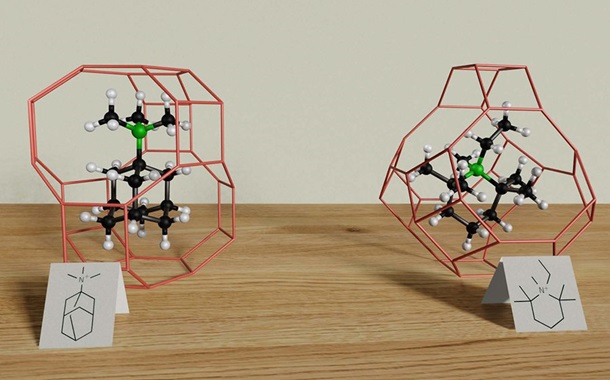Identification of Knowledge Management Barriers in Scientific R&D Projects in Czech Academic Environment
Downloads
Doi:10.28991/HIJ-2023-04-01-02
Full Text:PDF
Downloads
Gaál, Z., Szabó, L., Obermayer-Kovács, N., & Csepregi, A. (2015). Exploring the role of social media in knowledge sharing. Electronic Journal of Knowledge Management, 13(3), 185-197.
Boamah, F. A., Zhang, J., Shehzad, M. U., & Ahmad, M. (2023). The mediating role of social dynamics in the influence of absorptive capacity and tacit knowledge sharing on project performance. Business Process Management Journal, 29(1), 240–261. doi:10.1108/BPMJ-07-2022-0341.
Singh, S. K., Gupta, S., Busso, D., & Kamboj, S. (2021). Top management knowledge value, knowledge sharing practices, open innovation and organizational performance. Journal of Business Research, 128, 788–798. doi:10.1016/j.jbusres.2019.04.040.
Al-Husseini, S., El Beltagi, I., & Moizer, J. (2021). Transformational leadership and innovation: the mediating role of knowledge sharing amongst higher education faculty. International Journal of Leadership in Education, 24(5), 670–693. doi:10.1080/13603124.2019.1588381.
Islam, T., Zahra, I., Rehman, S. U., & Jamil, S. (2022). How knowledge sharing encourages innovative work behavior through occupational self-efficacy? The moderating role of entrepreneurial leadership. Global Knowledge, Memory and Communication. doi:10.1108/GKMC-02-2022-0041.
Yeşil, S., & Hirlak, B. (2013). An empirical investigation into the influence of knowledge sharing barriers on knowledge sharing and individual innovation behaviour. International Journal of Knowledge Management, 9(2), 38–61. doi:10.4018/jkm.2013040103.
Iftikhar, R., & Lions, C. (2022). Interorganizational knowledge sharing barriers and enablers: the case of Peshawar Bus Rapid Transit project. International Journal of Managing Projects in Business, 15(5), 769–792. doi:10.1108/IJMPB-11-2021-0313.
Le, Q. N., & Tuamsuk, K. (2022). Knowledge-Sharing Barriers in Non-Profit Environments in Thailand. Advances in Finance, Accounting, and Economics, 430–441, IGI Global, Hershey, United States. doi:10.4018/978-1-6684-5849-5.ch023.
Riege, A. (2005). Three-dozen knowledge-sharing barriers managers must consider. Journal of Knowledge Management, 9(3), 18–35. doi:10.1108/13673270510602746.
Bell, L., van Waveren, C. C., & Steyn, H. (2016). Knowledge-Sharing Within the Project-Based Organizsation: A Knowledge-Pull Framework. South African Journal of Industrial Engineering, 27(4). doi:10.7166/27-4-1580.
Kashif, M., & Kelly, K. (2013). Knowledge management and sharing within project teams: A qualitative study of Ericsson. Master Thesis in Business Administration, Mälardalen University, School of Business, Society and Engineering, Stockholm, Sweden.
Boh, W. F. (2007). Mechanisms for sharing knowledge in project-based organizations. Information and Organization, 17(1), 27–58. doi:10.1016/j.infoandorg.2006.10.001.
Santos, V. R., Soares, A. L., & Carvalho, J. í. (2012). Knowledge Sharing Barriers in Complex Research and Development Projects: An Exploratory Study on the Perceptions of Project Managers. Knowledge and Process Management, 19(1), 27–38. doi:10.1002/kpm.1379.
Flick, U. (2022). An introduction to qualitative research. SAGE, London, United Kingdom.
Bryman, A., Bell, E., & Nilsson, B. (2005). Business research methods. Liber ekonomi, Malmö, Sweden. (In Swedish).
Bočková, K., Oláh, A., & Hanák, M. (2020) Project management. DTI University Dubnica nad Váhom, Slovakia. (In Slovak).
Kerzner, H. (2017). Project management: a systems approach to planning, scheduling, and controlling. John Wiley & Sons, Hoboken, United States.
Portny, J. L., & Portny, S. E. (2022). Project management for dummies. John Wiley & Sons, Hoboken, United States.
Whyte, J., Comi, A., & Mosca, L. (2022). Making futures that matter: Future making, online working and organizing remotely. Organization Theory, 3(1), 263178772110691. doi:10.1177/26317877211069138.
Davies, A., MacAulay, S. C., & Brady, T. (2019). Delivery Model Innovation: Insights From Infrastructure Projects. Project Management Journal, 50(2), 119–127. doi:10.1177/8756972819831145.
Helgadottir, H. (2014). The ethical dimension of project management. IEEE Engineering Management Review, 42(1), 49–56. doi:10.1109/emr.2014.6758261.
Bočková, K., Š koda, M., & Lengyelfalusy, T. (2019). Project Management and Its Strategies in Global Organisation: Case Study. CBU International Conference Proceedings, 7. doi:10.12955/cbup.v7.1337.
Čáslavová, H. (2018). Project management in research and development projects. Conference Proceedings of Public policy in the field of research, development and innovation 2018, Alevia, Pilsen, Czech Republic.
Hanisch, B., Lindner, F., Mueller, A., & Wald, A. (2009). Knowledge management in project environments. Journal of Knowledge Management, 13(4), 148–160. doi:10.1108/13673270910971897.
Leseure, M. J., & Brookes, N. J. (2004). Knowledge management benchmarks for project management. Journal of Knowledge Management, 8(1), 103–116. doi:10.1108/13673270410523943.
Owen, J., & Burstein, F. (2005). Where Knowledge Management Resides within Project Management. Case Studies in Knowledge Management, 138–154, IGI Global, Hershey, United States. doi:10.4018/978-1-59140-351-7.ch009.
Ajmal, M., Helo, P., & Kekäle, T. (2010). Critical factors for knowledge management in project business. Journal of Knowledge Management, 14(1), 156–168. doi:10.1108/13673271011015633.
Edwards, J. S. (2022). Where knowledge management and information management meet: Research directions. International Journal of Information Management, 63, 102458. doi:10.1016/j.ijinfomgt.2021.102458.
Polyaninova, T. (2011). Knowledge Management in a Project Environment: Organisational CT and Project Influences. Organisational CT and Project Influences. Vine, 41(3), 1-3.
Newell, S., Bresnen, M., Edelman, L., Scarbrough, H., & Swan, J. (2006). Sharing knowledge across projects: Limits to ICT-led project review practices. Management Learning, 37(2), 167–185. doi:10.1177/1350507606063441.
Zhao, D., Zuo, M., & Deng, X. (Nancy). (2015). Examining the factors influencing cross-project knowledge transfer: An empirical study of IT services firms in China. International Journal of Project Management, 33(2), 325–340. doi:10.1016/j.ijproman.2014.05.003.
Argote, L., & Fahrenkopf, E. (2016). Knowledge transfer in organizations: The roles of members, tasks, tools, and networks. Organizational Behavior and Human Decision Processes, 136, 146–159. doi:10.1016/j.obhdp.2016.08.003.
Darr, E. D., & Kurtzberg, T. R. (2000). An Investigation of Partner Similarity Dimensions on Knowledge Transfer. Organizational Behavior and Human Decision Processes, 82(1), 28–44. doi:10.1006/obhd.2000.2885.
Cooke-Davies, T. (2002). The "real” success factors on projects. International Journal of Project Management, 20(3), 185–190. doi:10.1016/S0263-7863(01)00067-9.
Cooper, K. G., Lyneis, J. M., & Bryant, B. J. (2002). Learning to learn, from past to future. International Journal of Project Management, 20(3), 213–219. doi:10.1016/S0263-7863(01)00071-0.
Petter, S., Mathiassen, L., & Vaishnavi, V. (2007). Five keys to project knowledge sharing. IT Professional, 9(3), 42–46. doi:10.1109/MITP.2007.44.
Jafari Navimipour, N., & Charband, Y. (2016). Knowledge sharing mechanisms and techniques in project teams: Literature review, classification, and current trends. Computers in Human Behavior, 62, 730–742. doi:10.1016/j.chb.2016.05.003.
Haider, S. A., Zubair, M., Tehseen, S., Iqbal, S., & Sohail, M. (2023). How does ambidextrous leadership promote innovation in project-based construction companies? Through mediating role of knowledge-sharing and moderating role of innovativeness. European Journal of Innovation Management, 26(1), 99–118. doi:10.1108/EJIM-02-2021-0083.
Muller, J. (2015). The future of knowledge and skills in science and technology higher education. Higher Education, 70(3), 409–416. doi:10.1007/s10734-014-9842-x.
Srivastava, A., & Pinto, J. (2022). Dynamic linkages of empowering and transformational leadership with knowledge sharing in project teams. Knowledge Management Research & Practice, 20(4), 571–579. doi:10.1080/14778238.2022.2067492.
Ruuska, I., & Vartiainen, M. (2005). Characteristics of knowledge sharing communities in project organizations. International Journal of Project Management, 23(5), 374–379. doi:10.1016/j.ijproman.2005.01.003.
Gruenfeld, D. H., Martorana, P. V., & Fan, E. T. (2000). What do groups learn from their worldliest members? Direct and indirect influence in dynamic teams. Organizational Behavior and Human Decision Processes, 82(1), 45–59. doi:10.1006/obhd.2000.2886.
Kukko, M., & Helander, N. (2012). Knowledge Sharing Barriers in Growing Software Companies. 2012 45th Hawaii International Conference on System Sciences. doi:10.1109/hicss.2012.407.
Paulin, D., & Suneson, K. (2015). Knowledge transfer, knowledge sharing and knowledge barriers–three blurry terms in KM. Leading Issues in Knowledge Management, 2(2), 73.
Saide, Indrajit, R. E., & Hafiza, W. (2017). Information technology and individual factors on knowledge sharing activities. 2nd International Conference on Knowledge Engineering and Applications (ICKEA2017). doi:10.1109/ickea.2017.8169922.
Hase, S., Sankaran, S., & Davies, A. (2006). Overcoming barriers to knowledge management: visiting the dark side of organisations. The ActKM Online Journal of Knowledge Management, 3(1), 25–26.
Bloice, L., & Burnett, S. (2016). Barriers to knowledge sharing in third sector social care: a case study. Journal of Knowledge Management, 20(1), 125–145. doi:10.1108/JKM-12-2014-0495.
Mohajan, H. (2019). The second industrial revolution has brought modern social and economic developments. Journal of Social Sciences and Humanities, 6(1), 1-14.
Santhose, S. S., & Lawrence, L. N. (2023). Understanding the implementations and limitations in knowledge management and knowledge sharing using a systematic literature review. Current Psychology. doi:10.1007/s12144-022-04115-6.
Moud, H. I., & Abbasnejad, B. (2012). Factors affecting knowledge transfer in project-based organizations (PBOs). Chalmers University of Technology, Department of Construction Management, Gothenburg, Sweden.
Goh, S. C. (2002). Managing effective knowledge transfer: An integrative framework and some practice implications. Journal of Knowledge Management, 6(1), 23–30. doi:10.1108/13673270210417664.
Wiewiora, A., Trigunarsyah, B., Murphy, G., & Liang, C. (2009). Barriers to effective knowledge transfer in project-based organisations. Proceedings of the international conference on global innovation in construction, 13-16 September, 2009, Loughborough University, Loughborough, United Kingdom.
ZywioŠ‚ek, J., Rosak-Szyrocka, J., & Jereb, B. (2021). Barriers to Knowledge Sharing in the Field of Information Security. Management Systems in Production Engineering, 29(2), 114–119. doi:10.2478/mspe-2021-0015.
Taghipour, M., Mahboobi, M., & Gharagozlou, H. (2016). The impact of ICT on knowledge sharing obstacles in knowledge management process (including case-study). Iranian Journal of Information Processing Management, 31(4), 1049–1074.
Arsawan, I. W. E., Koval, V., Rajiani, I., Rustiarini, N. W., Supartha, W. G., & Suryantini, N. P. S. (2022). Leveraging knowledge sharing and innovation culture into SMEs sustainable competitive advantage. International Journal of Productivity and Performance Management, 71(2), 405–428. doi:10.1108/IJPPM-04-2020-0192.
Qureshi, A. M. A., & Evans, N. (2015). Deterrents to knowledge-sharing in the pharmaceutical industry: A case study. Journal of Knowledge Management, 19(2), 296–314. doi:10.1108/JKM-09-2014-0391.
Davenport, T. H., & Prusak, L. (1998). Working knowledge: How organizations manage what they know. Harvard Business Press, Boston, Massachusetts, United States.
Attewell, P. (1992). Technology Diffusion and Organizational Learning: The Case of Business Computing. Organization Science, 3(1), 1–19. doi:10.1287/orsc.3.1.1.
Ardichvili, A. (2008). Learning and Knowledge Sharing in Virtual Communities of Practice: Motivators, Barriers, and Enablers. Advances in Developing Human Resources, 10(4), 541–554. doi:10.1177/1523422308319536.
Jaca, C., Santos, J., Errasti, A., & Viles, E. (2012). Lean thinking with improvement teams in retail distribution: A case study. Total Quality Management & Business Excellence, 23(3–4), 449–465. doi:10.1080/14783363.2011.593907.
Migdadi, M. M. (2022). Impact of knowledge management processes on organizational performance: the mediating role of absorptive capacity. Business Process Management Journal, 28(1), 293-322. doi:10.1108/BPMJ-02-2021-0111.
Sarafan, M., Lawson, B., Roehrich, J. K., & Squire, B. (2022). Knowledge sharing in project-based supply networks. International Journal of Operations & Production Management, 42(6), 852–874. doi:10.1108/IJOPM-06-2021-0394.
Bhatti, S. H., Zakariya, R., Vrontis, D., Santoro, G., & Christofi, M. (2020). High-performance work systems, innovation and knowledge sharing. Employee Relations: The International Journal, 43(2), 438–458. doi:10.1108/er-10-2019-0403.
Disterer, G. (2002). Management of project knowledge and experiences. Journal of Knowledge Management, 6(5), 512–520. doi:10.1108/13673270210450450.
Chen, Y., Luo, H., Chen, J., & Guo, Y. (2022). Building data-driven dynamic capabilities to arrest knowledge hiding: A knowledge management perspective. Journal of Business Research, 139, 1138-1154. doi:10.1016/j.jbusres.2021.10.050.
Mcdermott, R., & O'Dell, C. (2001). Overcoming cultural barriers to sharing knowledge. Journal of Knowledge Management, 5(1), 76–85. doi:10.1108/13673270110384428.
Jarnagin, C., & Slocum, J. W. (2007). Creating Corporate Cultures through Mythopoetic Leadership. Organizational Dynamics, 36(3), 288–302. doi:10.1016/j.orgdyn.2007.04.004.
Al-Alawi, A. I., Al-Marzooqi, N. Y., & Mohammed, Y. F. (2007). Organizational culture and knowledge sharing: Critical success factors. Journal of Knowledge Management, 11(2), 22–42. doi:10.1108/13673270710738898.
Nadason, S., Saad, R. A.-J., & Ahmi, A. (2017). Knowledge Sharing and Barriers in Organizations. Indian-Pacific Journal of Accounting and Finance, 1(4), 32–41. doi:10.52962/ipjaf.2017.1.4.26.
Nakano, D., Muniz, J., & Batista, E. D. (2013). Engaging environments: Tacit knowledge sharing on the shop floor. Journal of Knowledge Management, 17(2), 290–306. doi:10.1108/13673271311315222.
Harlow, H. (2008). The effect of tacit knowledge on firm performance. Journal of Knowledge Management, 12(1), 148–163. doi:10.1108/13673270810852458.
Wang, Z., & Wang, N. (2012). Knowledge sharing, innovation and firm performance. Expert Systems with Applications, 39(10), 8899–8908. doi:10.1016/j.eswa.2012.02.017.
FoŠ™t, J., & Černí½, R. (2022). Limited interdisciplinary knowledge transfer as a missing link for sustainable building retrofits in the residential sector. Journal of Cleaner Production, 131079. doi:10.1016/j.jclepro.2022.131079.
Damodaran, L., & Olphert, W. (2000). Barriers and facilitators to the use of knowledge management systems. Behaviour and Information Technology, 19(6), 405–413. doi:10.1080/014492900750052660.
Gasik, S. (2011). A model of project knowledge management. Project Management Journal, 42(3), 23–44. doi:10.1002/pmj.20239.
Emiliano de Souza, D., Favoretto, C., & Carvalho, M. M. (2022). Knowledge Management, Absorptive and Dynamic Capacities and Project Success: A Review and Framework. EMJ - Engineering Management Journal, 34(1), 50–69. doi:10.1080/10429247.2020.1840876.
PMBOK® Guide. (2017). A guide to the project management body of knowledge. Project Management Institute, Pennsylvania, United States.
Salwan, P., Patankar, A., Shandilya, B., Iyengar, S., & Thakur, M. S. (2023). The interplay of knowledge management, operational and dynamic capabilities in project phases. VINE Journal of Information and Knowledge Management Systems. doi:10.1108/VJIKMS-09-2022-0297.
Ajmal, M. M., & Koskinen, K. U. (2008). Knowledge Transfer in Project-Based Organizations: An Organizational Culture Perspective. Project Management Journal, 39(1), 7–15. doi:10.1002/pmj.20031.
Stadler, R. (2021). Cultural Elements of Knowledge Management. Knowledge Management in Event Organisations, GOODFELLOW Publishers, Oxford, United Kingdom. doi:10.23912/9781911635444-4905.
Vuori, V., Helander, N., & Mäenpää, S. (2019). Network level knowledge sharing: Leveraging Riege's model of knowledge barriers. Knowledge Management Research and Practice, 17(3), 253–263. doi:10.1080/14778238.2018.1557999.
Aljaaidis, K. S., Bagais, O. A., & Al-Moataz, E. (2020). Knowledge sharing and individuals' effectiveness in educational institutions. Management Science Letters, 10(15), 3477–3484. doi:10.5267/j.msl.2020.7.001.
Paulin, D., & Suneson, K. (2012). Knowledge transfer, knowledge sharing and knowledge barriers–three blurry terms in KM. Electronic Journal of Knowledge Management, 10(1), 82-92.
Veer Ramjeawon, P., & Rowley, J. (2020). Enablers and barriers to knowledge management in universities: perspectives from South Africa and Mauritius. Aslib Journal of Information Management, 72(5), 745–764. doi:10.1108/AJIM-12-2019-0362.
- This work (including HTML and PDF Files) is licensed under a Creative Commons Attribution 4.0 International License.





















